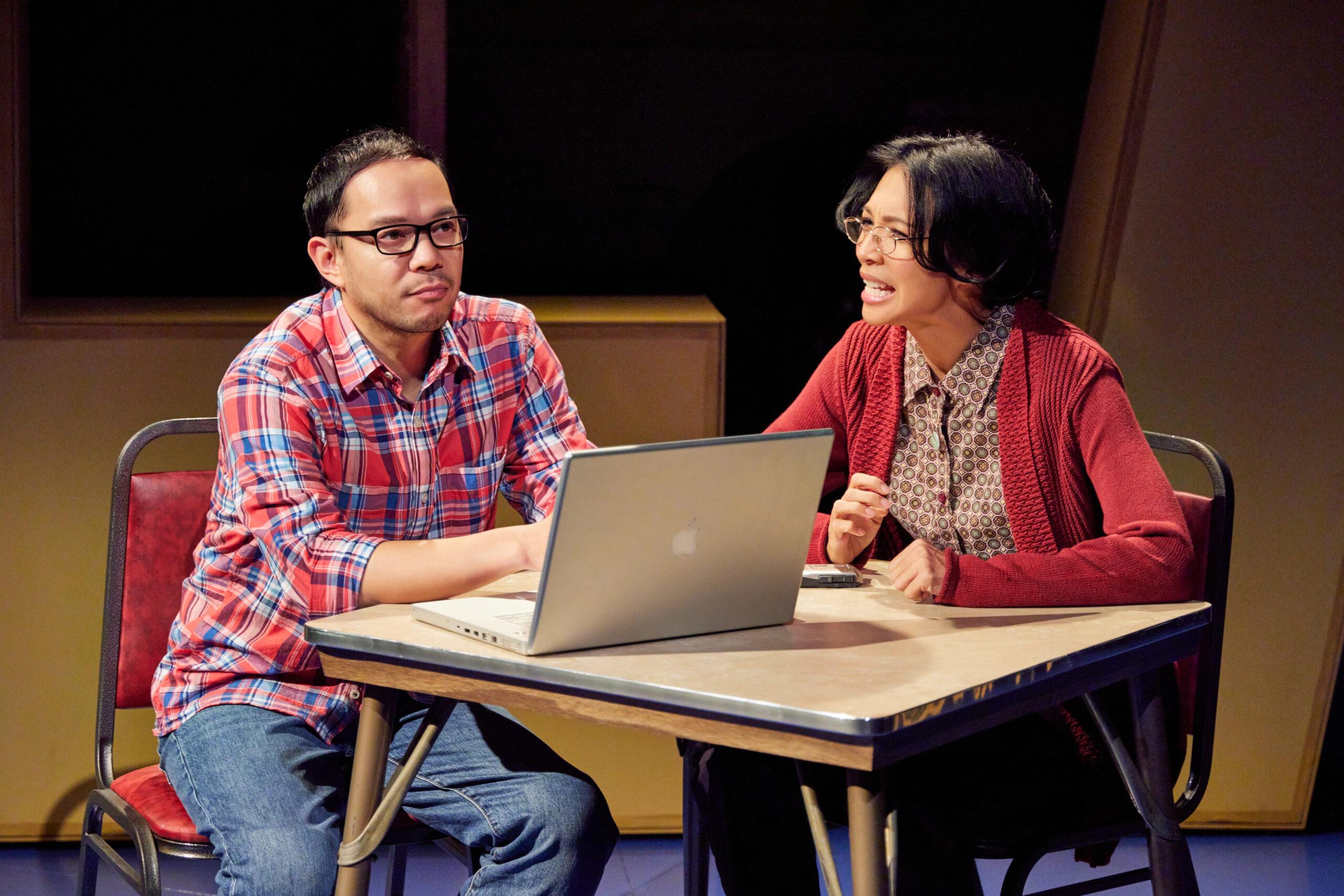
Maureen Sebastian’s name graces the marquee as one of the lead actors in “Poor Yella Rednecks,” the sequel to Qui Nguyen’s acclaimed play, “Vietgone.” This gripping new production masterfully unravels the complexities of immigrant life in the 1980s, offering a fresh perspective on the Asian-American experience.
Sebastian’s role in the play resonates deeply with her own journey. It’s a journey that began nearly two decades ago when she forged a creative partnership with playwright Qui Nguyen. Their initial encounter occurred when Sebastian was a fresh college graduate at the age of 22. Although their first meeting didn’t result in an immediate collaboration, it marked the beginning of a fruitful artistic connection that endures to this day.

Her path into the world of theater was shaped by her Filipino heritage and her family’s determined commitment to education. Sebastian pursued degrees in both theater performance and English at the University of Michigan. Her immigrant parents, who had worked tirelessly to secure a better future, supported her passion for the arts while ensuring she had a solid academic foundation.
“My parents are very supportive no matter what but being immigrants from the Philippines, having made their way up the socio-economic ladder here in the United States with nothing, they wanted me to do what made me happy but they also didn’t know what being an actor and an artist meant,” Sebastian told the Asian Journal. “So as much as they wanted to support me, they also wanted me to have something of a backup plan.”
Though Sebastian humbly refrains from embracing the label of a “triple threat,” her skills as an actor, singer, and dancer are there. “I am an actor that can sometimes sing a song and hold a beat and can learn choreography if I really need to,” she quipped.
“Poor Yella Rednecks” challenged her versatility as she dabbled in rap and hip hop music. Raised in diverse communities across the Midwest, Sebastian developed a deep affinity for hip hop, a genre that profoundly resonated with her immigrant experience.
She recalls that her persistent commitment to an acting career became evident during her high school years, where a pivotal moment set her on a course that she couldn’t ignore. Following her grandfather’s advice to pursue what made her happiest, she made a firm commitment to a life as a performing
artist. Her journey from those formative years to the stages of New York City was marked by unyielding determination and the steadfast support of her
parents. Despite their initial reservations, they stood solidly behind her artistic aspirations.

Sebastian’s work, particularly in plays like “Poor Yella Rednecks” holds the power to shape the cultural landscape by celebrating and valuing Asian-American stories. The play is a sequel to “Vietgone,” where Nguyen showed – rom-com style – how his parents Tong and Quang met at a refugee camp after escaping the fall of Saigon.

The sequel is as fun, raucous, and irreverent as the first and gives the audience a glimpse of the life of immigrants from Vietnam who settled in Arkansas in the 1980s. The amazing cast of six highlighted Sebastian and Ben Levin as the couple, with Jon Norman Schneider playing their son, the playwright. Jon Hoche, Samantha Quan, and Paco Tolson complete the powerful ensemble.

Nguyen’s narrative embodies the quintessential immigrant experience, and would resonate deeply with Filipinos who recognize the familiar dynamics. Instances like a grandmother shouldering childcare duties due to parents’ work commitments, or the prevalence of the mother tongue at home leading to schoolyard teasing for struggling with English, strike a chord.
The playwright also pays homage to the musical “Hamilton,” emphasizing the mantra ‘Immigrants: we get the job done’ for added impact, drawing parallels to the resilience and determination of those forging a new life in a foreign land.
Sebastian is thankful that she found a great group of co-workers in the play, people who possess a remarkable level of expertise in their respective fields and demonstrate exceptional proficiency in their work.
“This cast is the most amazing group of people I’ve ever worked with in my entire life,” she quipped. “Most importantly, they’re just like wonderful, beautiful, kind, human beings.”
The play is ably directed by fellow Filipino American May Adrales and two other cast members – Jon Hoche and Jon Norman Schneider – are of Filipino descent as well.
“I feel like as an actor or like in the theater community if you’re Filipino, the first thing you talk about is like, where are you from? Where’s your family from? Where did you grow up? What was your experience like? You know, it’s just how do you not talk about those things,” she revealed.
As she navigates her career, she acknowledges the profound impact of her art, not only on herself but on the generations that follow. For Sebastian, acting in plays like Poor Yella Rednecks brings a sense of fulfillment, knowing she is honoring her ancestors.

She takes pride in making her family proud and contributing to the progression of celebrating and cherishing Asian American narratives in the nation. That said, she looks forward to the time when her children will have something that they can look forward to and look back and say, ‘Yeah, Mommy was a part of that’.
Through her roles in plays like “Poor Yella Rednecks,” Maureen Sebastian amplifies the narratives of immigrants, weaving threads of shared experiences and cultural richness into the tapestry of American theater. Her performances serve as a testament to the depth and complexity of Asian-American stories, dispelling stereotypes and offering a more nuanced portrayal of our diverse society.







